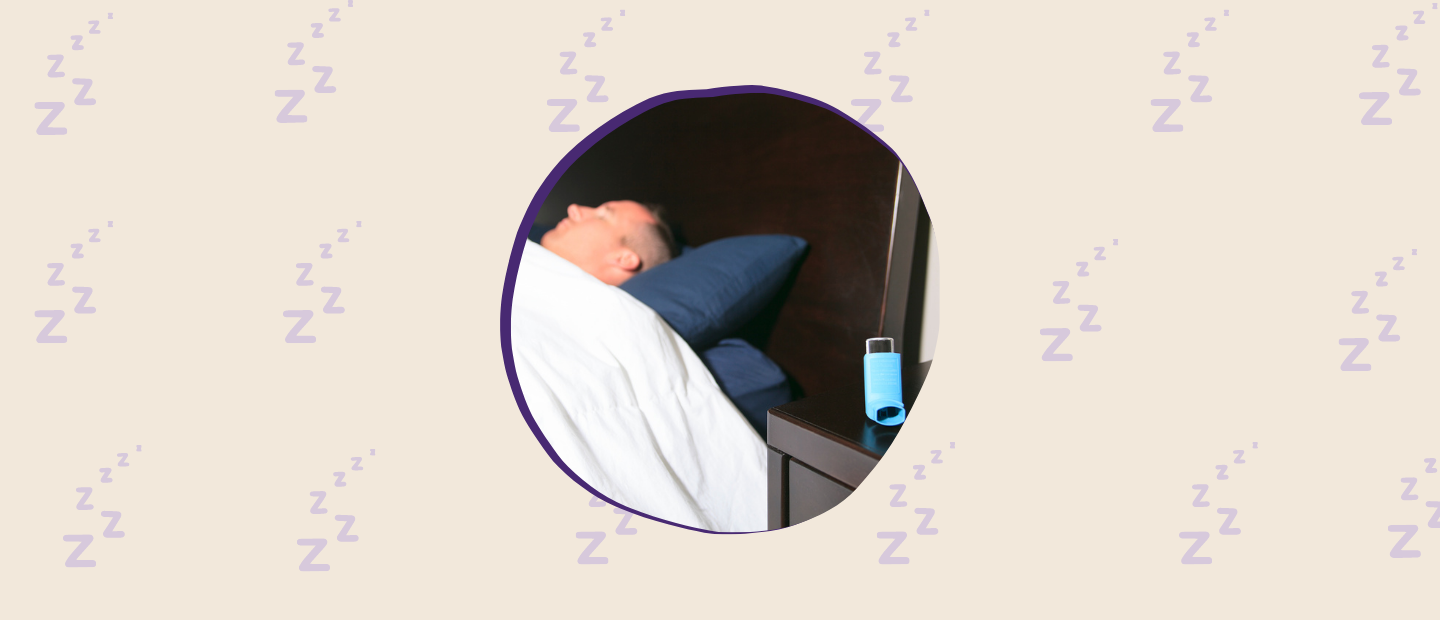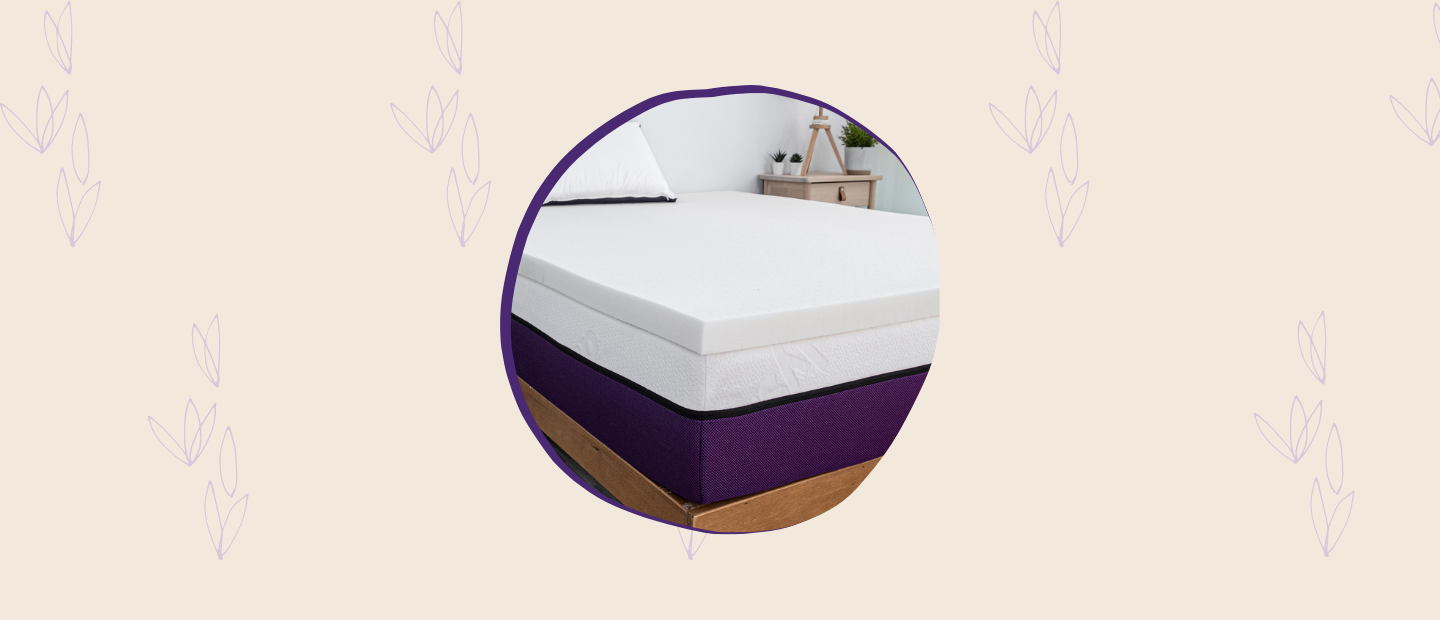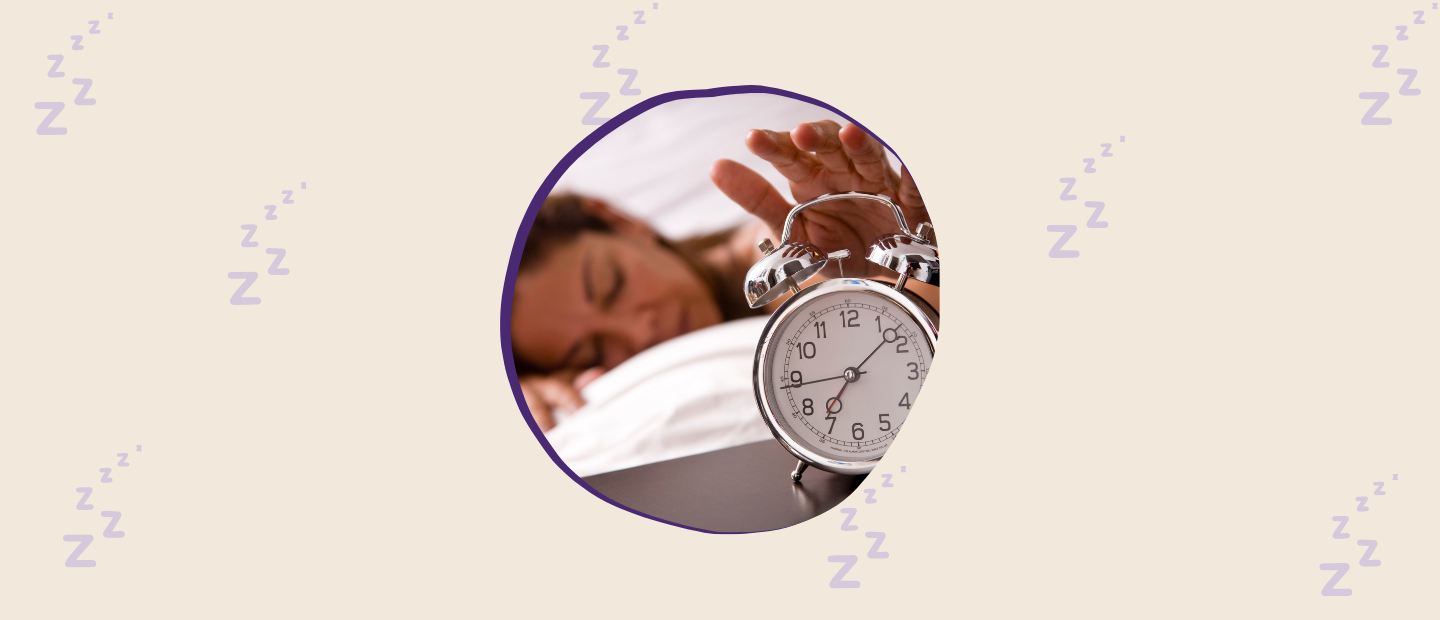Nighttime or nocturnal asthma causes chest tightness, coughing, wheezing, and shortness of breath when you're trying to sleep. If it's disrupting your sleep, you're likely to be tired and grumpy the next day and more prone to daytime asthma attacks.
Many people with asthma find their symptoms flare up at bedtime, making it hard to get a good night's sleep. If you have asthma and you're experiencing these problems, here are some ideas for increasing your sleep quality. First off, your position.
Back sleepers
There are a couple of positions you can try if you prefer to sleep on your back. One is to raise your shoulders and head above the rest of your body using several pillows.
Lying flat increases congestion and sinus drainage, which can clog your nasal passages and increase airway irritation, leading to breathing problems. If you elevate your head and neck, gravity lends a hand and reduces the risk of congestion.
Another option for back sleepers is to put an additional pillow under your knees or use an ortophedic pillow. This has two beneficial effects: one is to improve circulation, the other is to keep your head and shoulders in the same raised position pillow while you sleep.

Side sleepers
One of the common problems side sleepers with asthma have is acid reflux (heartburn). The stomach acid rising up your esophagus when you're lying down can cause irritation that worsens asthma.
Sleeping on your left side makes it harder for acid to reflux out of your stomach and cause heartburn. Try to raise your head and neck as well to make this position even more effective.
Better sleep posture means easier breathing, so you could also place a pillow between your knees to improve your spinal alignment and stability.

Sleeping positions to avoid when you have asthma
Lying on your right side might make it harder for some people with asthma to breathe. This is because right-side sleeping activates a part of your nervous system that could constrict your airways.
Not everyone has this problem though, so it's worth trying right-side sleeping to see if it makes any difference to your asthma symptoms.

If you find it more comfortable to sleep on your stomach, bear in mind that this is the most restrictive position for drawing air into your lungs – not great if breathing is difficult for you.
And remember, raising your head shouldn't involve bending your neck. You want to keep your spine correctly aligned when you're asleep, or you'll be waking up with a sore, stiff neck. Plus, if your neck's not straight, neither is your airway.
Starting under your shoulders, make a slope with your pillows and gently increase the incline to your head, so you support your neck.

Other tips for sleeping better with asthma include:
Keeping allergens in your bedroom to a minimum
Allergies and asthma are closely linked, so think about the potential allergens in your bedroom. Change the bedding weekly to keep dust mites and other airborne particles to a minimum, and keep your room dusted and vacuumed regularly.
The materials you choose could also make a difference. For most people, natural cotton is less likely to worsen asthma than synthetic fibers. Or you could try hypoallergenic bedding, which is designed to avoid triggering airway irritation.
Our Polysleep Memory Foam Mattress and mattress topper use open-cell Ventilated Viscoelastic Hybrid Foam, which is antimicrobial. That means it repels bacteria and minimizes allergens.
Good sleep hygiene
Sleep hygiene means adopting habits that improve your chances of restful and restorative sleep. It includes actions like going to bed and getting up around the same time each day, avoiding electronic screens, and making sure your mattress is comfortable and your bedroom is conducive to sleep.

Pure air
Try using an air purifier to ensure you're breathing in fresh air while you sleep. If the atmosphere tends to be dry, add a humidifier as well. Dry air is a significant airway irritant and also increases postnasal drip and nasal congestion, further restricting your airways.
Not too hot, not too cold
Keep your bedroom at a comfortable temperature. Too much heat is oppressive, but cold can trigger asthma, so find a happy medium – between 60 to 67 degrees is about right for most people.

Close your windows
It might seem like a sensible idea to open your windows and let some fresh air in while you sleep. Unfortunately, what can also come in is cold air, pollutants, pollen, and other allergens. If you have asthma, the safest bet is to keep the windows shut and the irritants out.
Consider other causes of sleep problems
There's no doubt that having asthma can affect sleep, but it's not the only potential cause you should consider. One, in particular, is obstructive sleep apnea, a condition where soft tissues in your throat relax too much when you’re asleep and block your airway.
Each time this happens, the brain wakes you, so you start breathing again. However, these brief waking periods occur so many times in the night, you get up in the morning tired and unrefreshed.
You're unlikely to remember waking so frequently the next day, so you may not realize this is happening. Therefore, it makes sense to have your doctor check for sleep apnea.
Lastly, if you have asthma, make sure you have easy access to your inhaler or other medications when you're in bed, in case you have an attack in the night.
Try these methods and see which ones work best for you for a better night's sleep when you have asthma.

If you’ve got asthma or any other kind of breathing problem, you should see your doctor regularly and make sure you have the medications you need to manage your condition effectively.
If you liked our blog article, please don't forget to Share it with your friends by clicking the button below!








